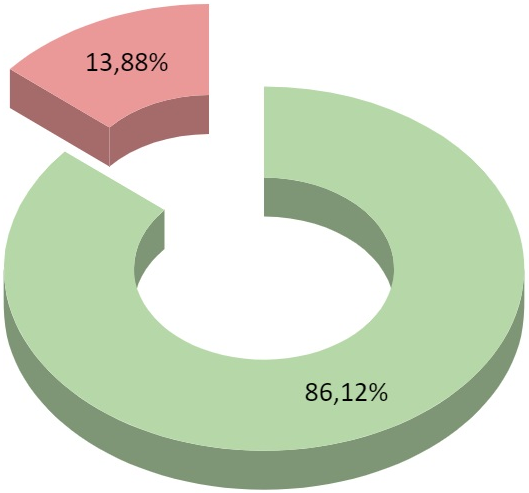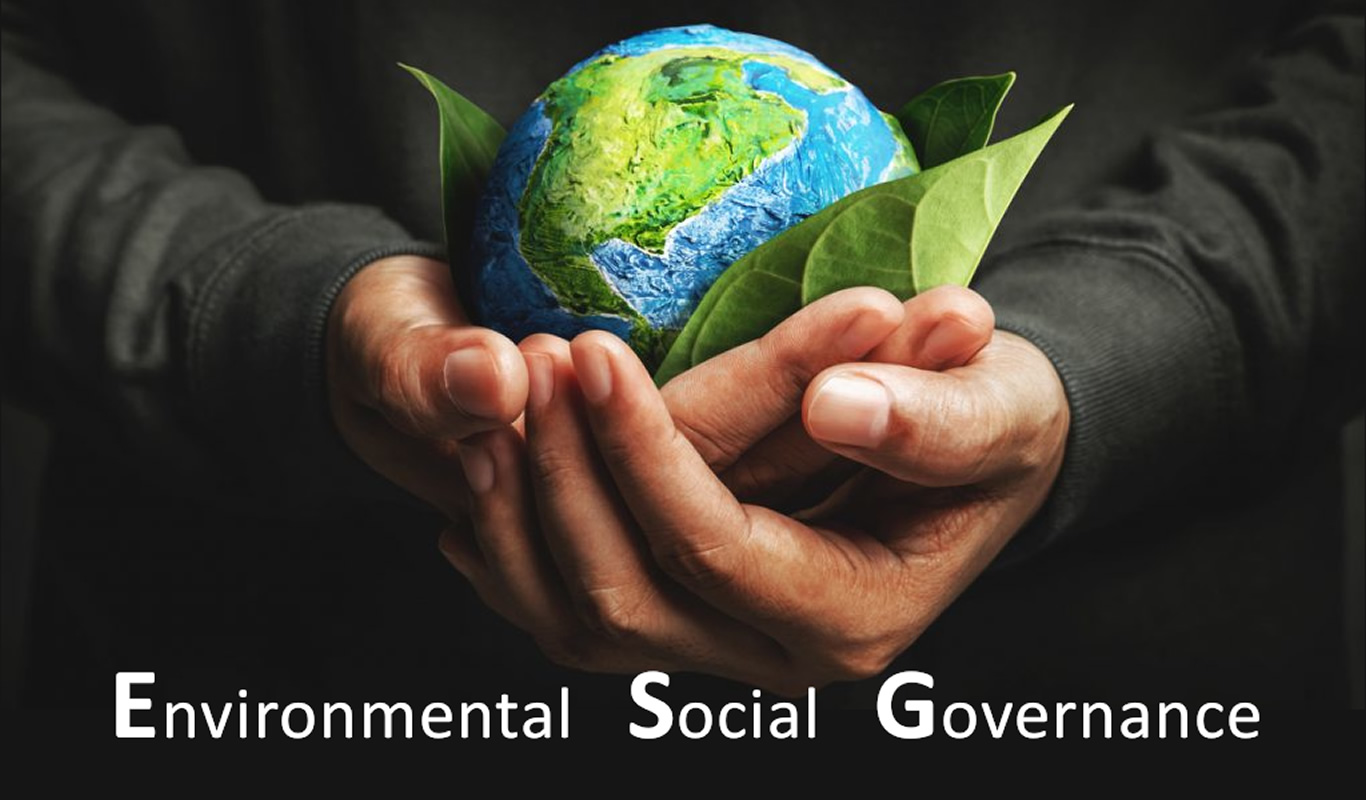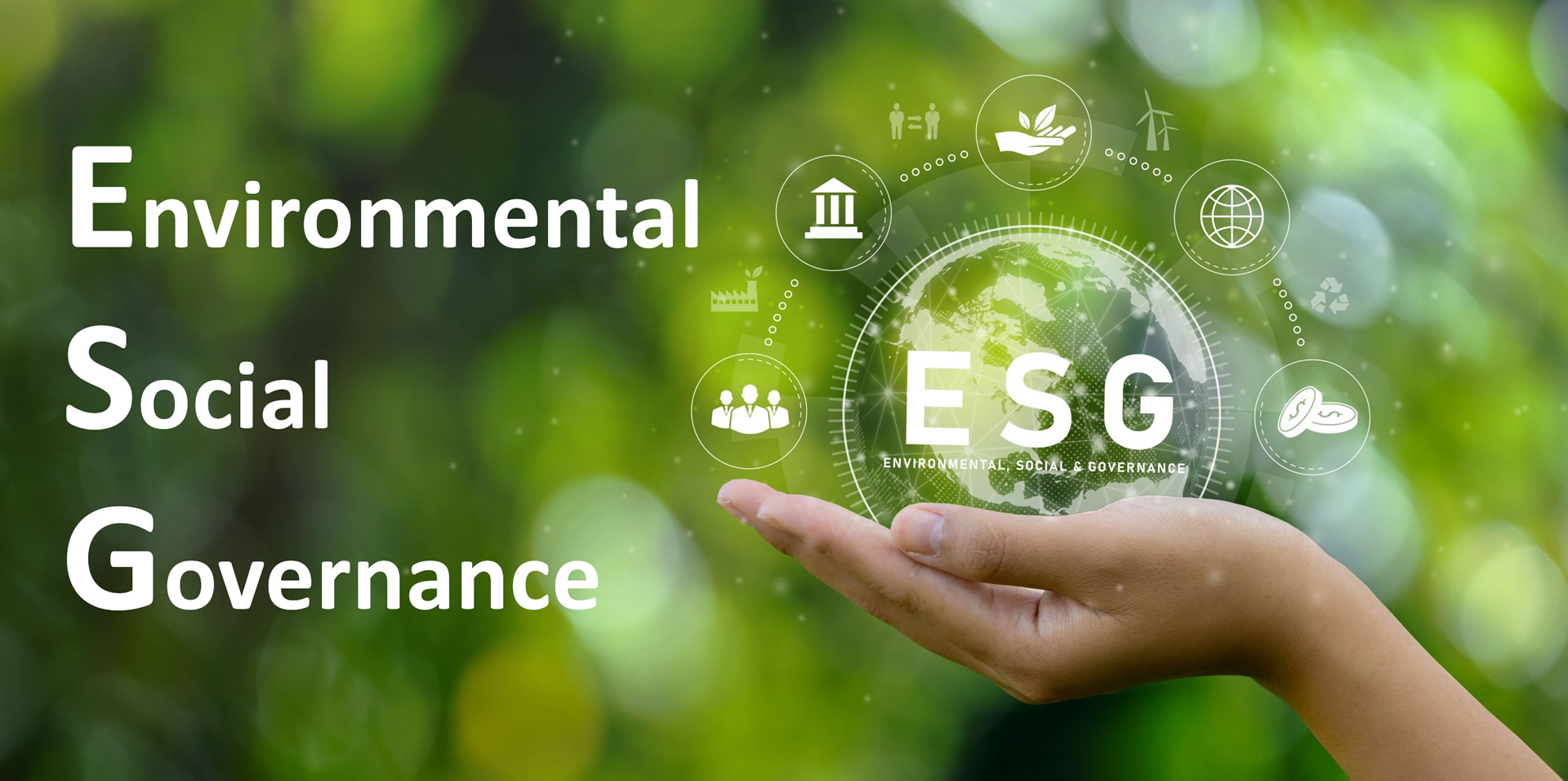
ENVIRONMENTAL
Recycling is good. Recycling is important for environmental sustainability and for reducing the amount of waste on the planet. Recycling materials, such as plastic, and then reintroducing them into the production process allows us to reduce the waste that ends up in the environment and to limit the use of new raw materials.CMG considers recycling an important economical aspect which, with over forty years of experience in manufacturing high-quality granulators and shredders, can offer excellent machinery for scrap recovery.
CARBON FOOTPRINT
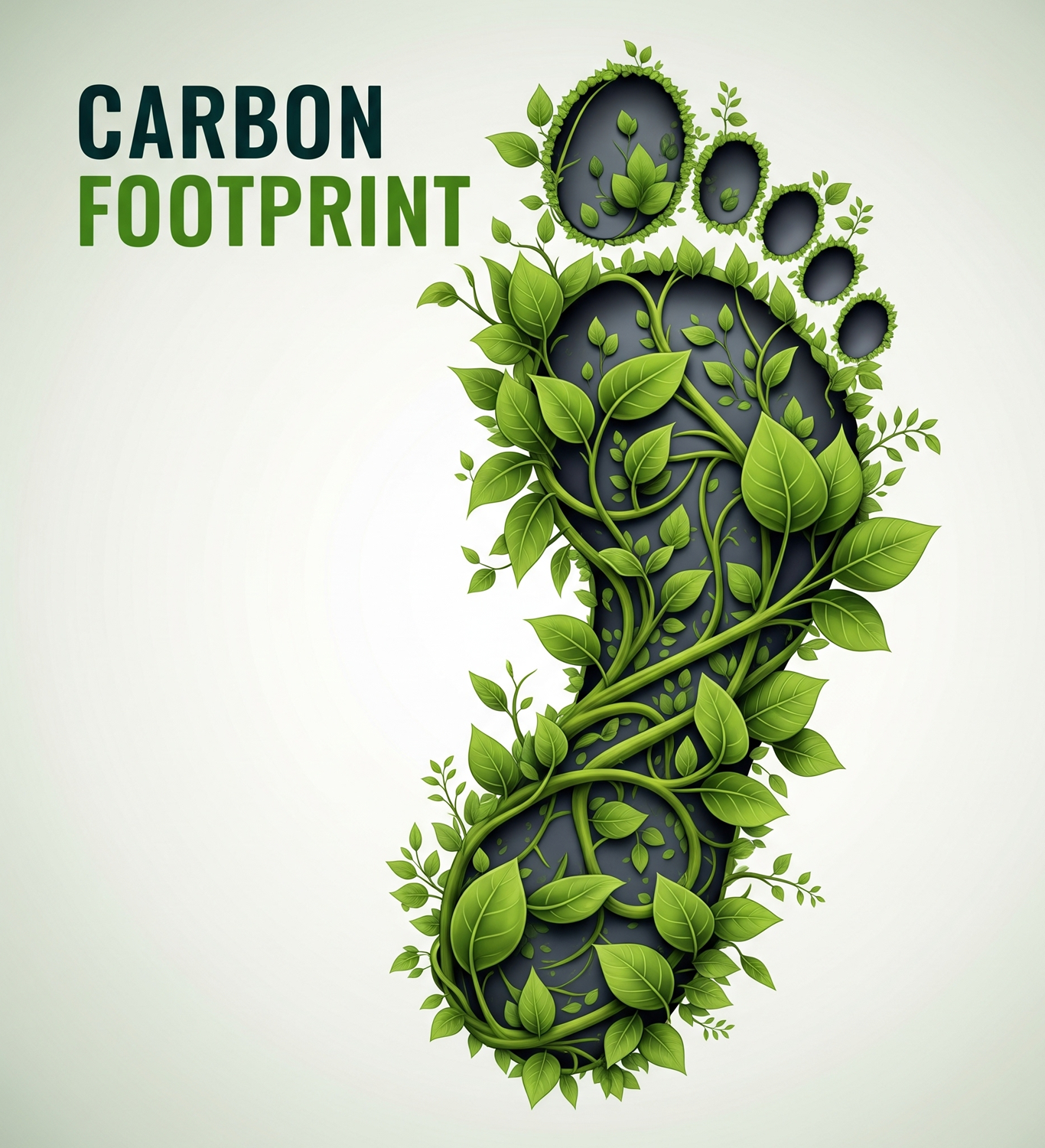
CMG has produced an initial assessment of its organizational carbon footprint (or GHG inventory) limited to the Budrio plant with the aim of understanding and evaluating its performance in this area for the year 2024 and comparing it with the base year 2019.
The concept of carbon footprint originated within the broader concept of ecological footprint, developed in the 1990s in response to growing awareness of the impact that greenhouse gas emissions have on climate change.
Global warming, the role of CO2 and other greenhouse gases in this phenomenon, and its anthropogenic causes are issues that emerged in the scientific community as early as the beginning of the 20th century, but have only become a concern in the political and civil world in recent decades.
The need to measure and report the greenhouse gas emissions of a product, service, or organization throughout its entire life cycle is therefore essential in order to implement concrete policies and actions to reduce them, with the aim of limiting the damage caused by climate change, which is having an increasingly strong and widespread impact.
The primary objective of the Organization Carbon Footprint (OCF) study is to quantify the potential impact of the organization's activities on global warming. Specifically, the OCF is a measure of the direct and indirect greenhouse gas (GHG) emissions produced by the organization's activities.
The results of the Carbon Footprint are expressed in CO2 equivalent (CO2eq), an environmental indicator that expresses and encompasses all greenhouse gas emissions emitted directly or indirectly by the organization.
Emissions calculated in the study
Scope 1: Direct emissions from activities owned or controlled by the organization that release emissions into the atmosphere.
Scope 1 may include:
-
- Direct emissions from stationary combustion: fossil fuels or biomass burned in fixed equipment (e.g., boilers)
- Direct emissions from mobile combustion: fuel used in transportation (e.g., company fleet vehicles)
- Process emissions: arising from industrial processes (e.g., N₂O)
- Fugitive emissions: unintentional release of greenhouse gases (e.g., refrigeration systems)
- Emissions and removals from land use and forestry
Scope 2: Indirect emissions released into the atmosphere associated with the consumption of purchased electricity, heat, steam, and cooling.
Scope 2 emissions can be estimated using two different approaches:
- Market-based: reflects greenhouse gas emissions based on any specific contracts the organization has with its electricity supplier, allowing the characteristics of the energy actually purchased to be taken into account. In the absence of specific contracts, they will reflect the greenhouse gas emissions of untracked grid electricity (residual mix*)
- Location-based: uses the average emission factor for energy produced in the country where the plant operates, regardless of the supplier selection. In this study, greater emphasis is placed on the market-based approach as it potentially highlights the company's future strategic choices. The results calculated according to the location-based approach will also be reported for comparison.
Results - GHG emissions associated with CMG

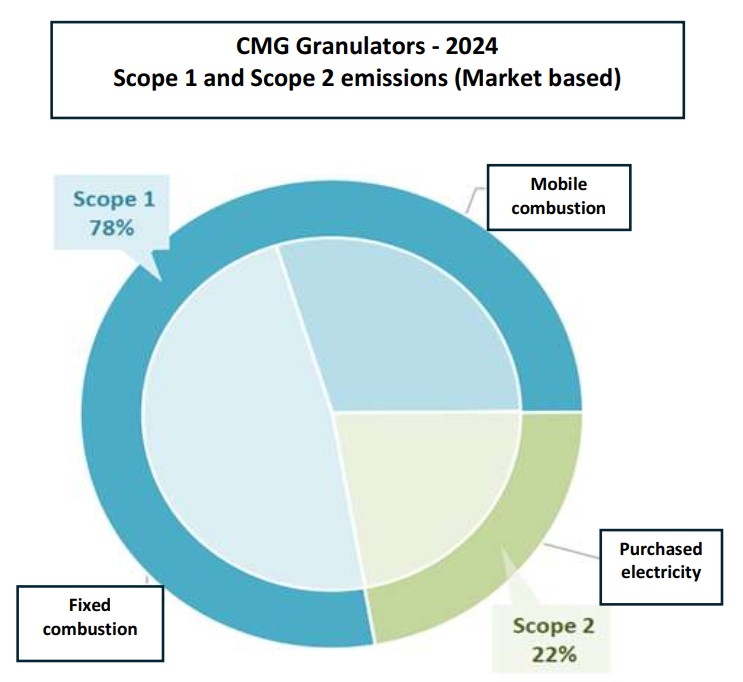
Results - Comparison with reference year

Scope 1 and 2 emissions measured for 2024 amounted to 206 t CO2e (market-based approach), of which 78% was due to Scope 1 emissions related to direct emissions from fixed combustion. Scope 2 emissions contribute 22% of the total carbon footprint, with the main contribution coming from indirect emissions related to the production of the electricity mix consumed by the company.
Comparing the data for the reference year 2024 with those for the base year 2019, there was a significant overall reduction in Scope 1 and Scope 2 emissions of 14%. This result is mainly attributable to the marked decrease in indirect emissions from purchased energy (Scope 2), which fell by 47% compared to 2019.
Emission intensity analysis
It is also useful to analyze the emission intensity* in relation to turnover, expressed in tons of CO₂ equivalent per thousand euros (tCO₂eq/k€). The analysis shows a reduction in carbon intensity from 0.028 tCO₂eq/k€ in 2019 to 0.017 tCO₂eq/k€ in 2024, a 40% reduction in emissions intensity.
* It should be noted that this indicator only considers Scope 1 and Scope 2 emissions and, therefore, is not comparable to a Product Carbon Footprint.
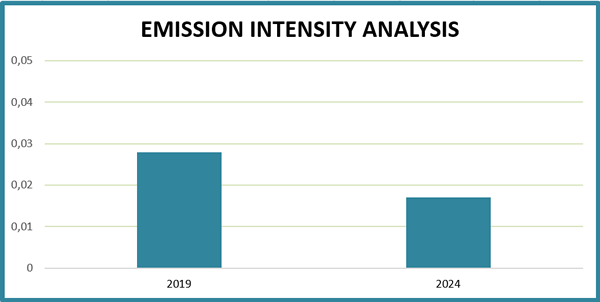
SOCIAL
CMG is attentive to social sustainability about training, safety and support of the local community.With over 1,000 hours a year of training for its employees, CMG aims to increase the skills of its team. In a world where changes happen extremely quickly, training is important to face and manage changes.
“Safety and health in the workplace are a commitment for everyone, not only in respect for safe and correct behaviours in carrying out the work, but also in constantly creating the most suitable conditions for this to happen.” In sharing the above principle with all its employees, CMG undertakes to continuously improve the management of safety and health in the workplace, allocating organisational, instrumental and economic resources and implementing a Management System of Safety and Health in the workplace.
Sport is inclusion, aggregation and participation, it has always played a decisive role in our social and family culture. For this reason, CMG contributes to the support of the community, supporting various local sports associations.
CMG at the Bologna Marathon: our colleagues and our social commitment are the protagonists
On Sunday, March 2, 2025, a group of CMG colleagues enthusiastically participated in the Bologna Marathon, demonstrating determination, team spirit, and passion for sport. Proudly wearing CMG uniforms, they faced the challenge with energy, embodying the company's values inside and outside the workplace.Taking part in an event like the Bologna Marathon was first and foremost a way to test ourselves and push our limits, but also an opportunity to strengthen our team spirit. Our colleagues supported each other along the entire route, demonstrating that unity and collaboration are values that go far beyond the office. This experience made the sense of belonging to our company even stronger.
CMG is proud to promote initiatives that put people, their growth and their well-being at the center. Continuing to support social activities like this is an integral part of our mission. A big round of applause to our colleagues for having faced the challenge with enthusiasm, proudly carrying the colors of CMG along the streets of Bologna!
GOVERNANCE
To ensure a continuous and correct management and control of the organization, CMG has built a governance system assisted by a ethics code and an organisational model. The corporate bodies that form CMG governance system are as follows:- board of directors
- board of statutory auditors
- supervisory body
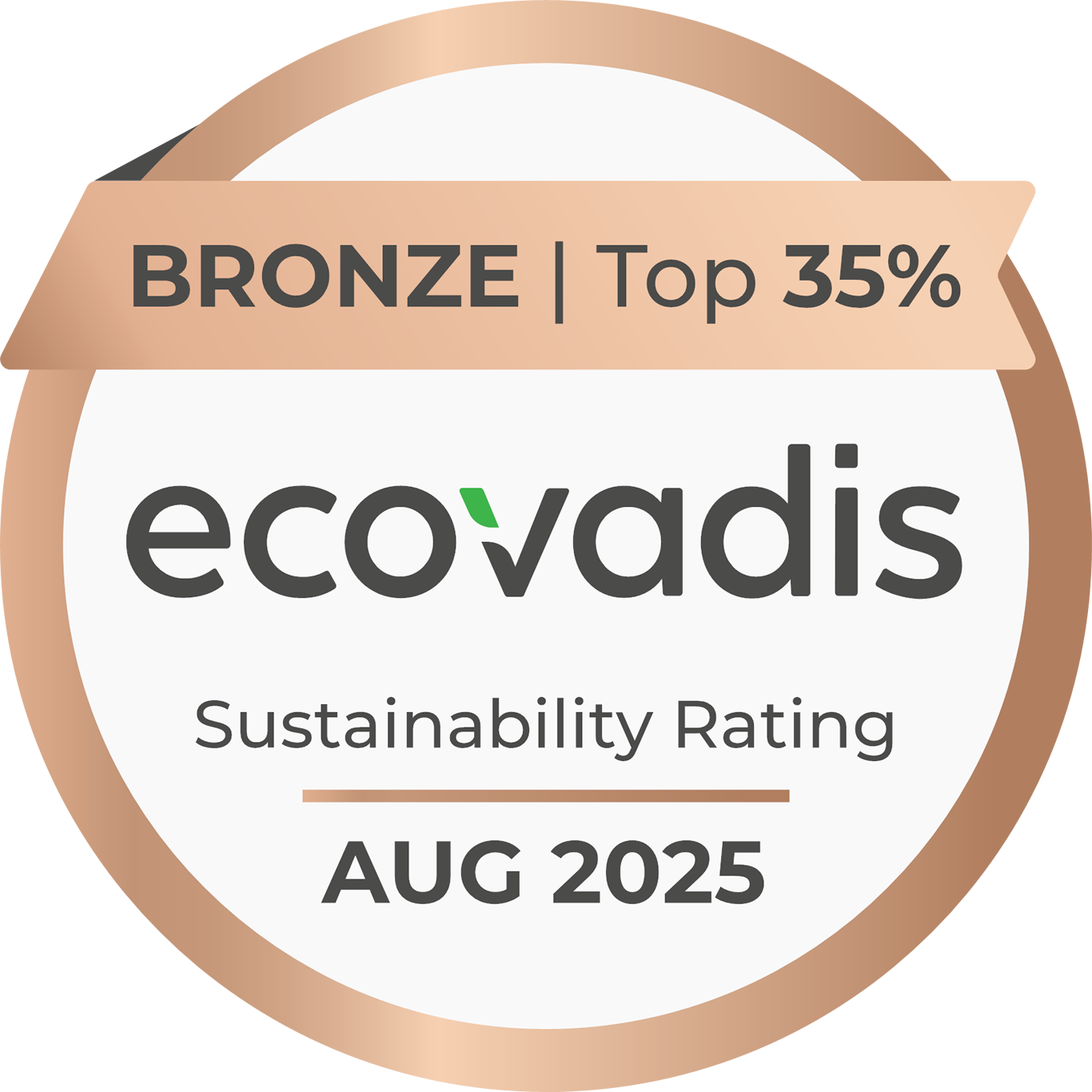
ECOVADIS
As part of our commitment to society, our people and the environment, CMG Granulators completes a thorough assessment of its business sustainability practices every year through EcoVadis, the global standard for business sustainability ratings. The EcoVadis assessment includes 21 sustainability criteria across four core themes: Environment, Labor & Human Rights, Ethics and Sustainable Procurement.
In our latest rating, which was completed in August 2025, we earned a bronze medal and scored a 63/100 , which places CMG in the top 70th globally, with a 10% improvement.

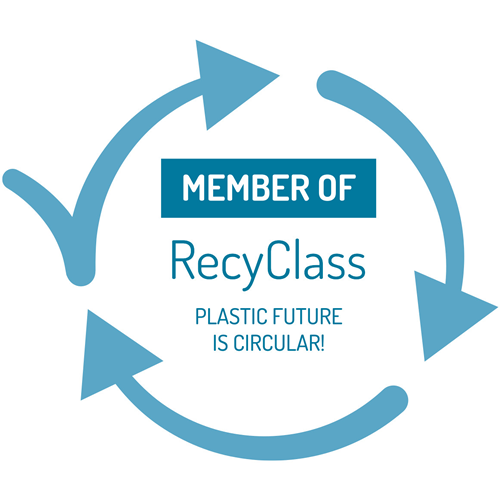
RECYCLASS
CMG Granulators has recently joined RecyClass, the organization that supports the industry in improving the recyclability of plastic products, once again affirming its role as a leader in the research and development of innovative solutions for plastic recyclability.
CMG will contribute its expertise to RecyClass by leveraging its specific know-how in the field of size reduction.
CMG will actively contribute to the evolution of standards and practices aimed at promoting an increasingly efficient and sustainable circular economy, based on its advanced technical skills and solid experience in the sector.
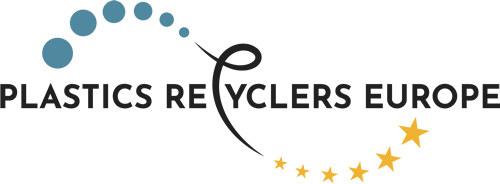
PLASTICS RECYCLERS EUROPE
CMG Granulators has joined Plastics Recyclers Europe (PRE)! Plastics Recyclers Europe advocates for harmonised wastemanagement and recycling across Europe. The organization strives to improve plastic recyclability and increase the use of recycled materials through industry-wide collaboration.
https://www.plasticsrecyclers.eu/

MY GARDEN
CMG Granulators uses Warrant Hub's My Garden service, which captures corporate performance in the areas of corporate, social and governance sustainability and enables the company to monitor and implement its sustainable development program through an ESG - GRI scoring model (2023 data).Environment

Social

Governance

WASTE MANAGEMENT IMPACT MONITORING REPORT
Total waste generated by CMG and its suppliers.Processing of the collected data shows that CMG's production of manufactured goods generates 137 tons of waste per year (year 2022), of which 86% (118 tons) is destined for recycling and 14% (19 tons) for disposal.
